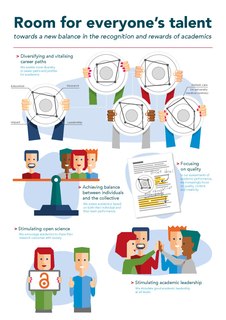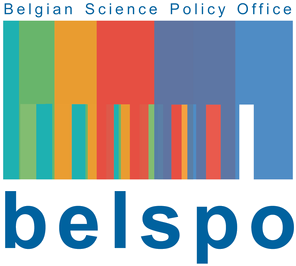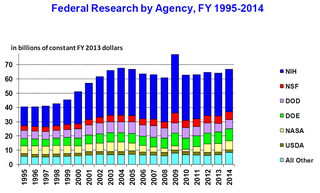 W
WScience policy is concerned with the allocation of resources for the conduct of science towards the goal of best serving the public interest. Topics include the funding of science, the careers of scientists, and the translation of scientific discoveries into technological innovation to promote commercial product development, competitiveness, economic growth and economic development. Science policy focuses on knowledge production and role of knowledge networks, collaborations and the complex distributions of expertise, equipment and know-how. Understanding the processes and organizational context of generating novel and innovative science and engineering ideas is a core concern of science policy. Science policy topics include weapons development, health care and environmental monitoring.
 W
WThe Belgian Federal Science Policy Office, known by the acronym BELSPO, is the federal government body responsible for research policy in Belgium. It designs and implements research programmes and networks and manages the participation of Belgium in European and international organisations. BELSPO supervises Belgian federal scientific organisations.
 W
WThe International Council for Science was an international non-governmental organization devoted to international cooperation in the advancement of science. Its members were national scientific bodies and international scientific unions.
 W
WCarmiña Londoño is a Deputy Division Director at the National Science Foundation. She previously spent 13 years at the National Institute of Standards and Technology, where she led the Global Standards and Information Group. Londoño spent two terms on the Board of Directors of SPIE, and won their Director's Award in 2019.
 W
WThe National Science Board (NSB) of the United States establishes the policies of the National Science Foundation (NSF) within the framework of applicable national policies set forth by the President and the Congress. The NSB also serves as an independent policy advisory body to the President and Congress on science and engineering research and education issues. The Board has a statutory obligation to "...render to the President and to the Congress reports on specific, individual policy matters related to science and engineering and education in science engineering, as Congress or the President determines the need for such reports,". All Board members are presidential appointees. NSF's director serves as an ex officio 25th member and is appointed by the President and confirmed by the US Senate.
 W
WResearch Councils UK, sometimes known as RCUK, was a non-departmental public body which coordinated science policy in the United Kingdom from 2002 to 2018. It was an umbrella organisation that coordinated the seven separate research councils that were responsible for funding and coordinating academic research for the arts, humanities, science and engineering. In 2018 Research Councils transitioned into UK Research and Innovation (UKRI).
 W
WResearch Fortnight is an independent publication that reports on research policy and funding in the UK. It is sold by institutional subscription; some 95 per cent of universities in the UK subscribe to it, along with government agencies and research councils. The title is read by pro vice-chancellors for research, government scientists, policymakers, research managers and individual researchers.
 W
WThe science policy of the United States is the responsibility of many organizations throughout the federal government. Much of the large-scale policy is made through the legislative budget process of enacting the yearly federal budget, although there are other legislative issues that directly involve science, such as energy policy, climate change, and stem cell research. Further decisions are made by the various federal agencies which spend the funds allocated by Congress, either on in-house research or by granting funds to outside organizations and researchers.
 W
WDuring his term as president of the United States (2017–2021), Donald Trump and his administration repeatedly politicized science by pressuring or overriding health and science agencies to change their reporting and recommendations so as to conform to his policies and public comments. This was particularly true with regard to the COVID-19 pandemic in the United States.
 W
WShannon Gabrielle Valley is an American climate scientist and policy advisor. She is based at Georgia Tech, where she studies the climate history of planet Earth. She worked as a liaison between the White House and NASA Headquarters for the Obama administration. In 2020 Valley was appointed to Joe Biden's NASA transition team.
 W
WMarianne C. Walck is the Chief Research Officer at the Idaho National Laboratory. She previously served as Vice President of the Sandia National Laboratories, where she led nuclear weapons stewardship.